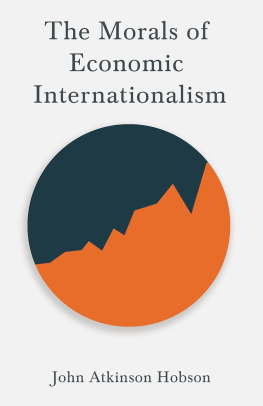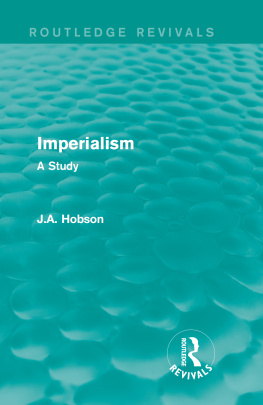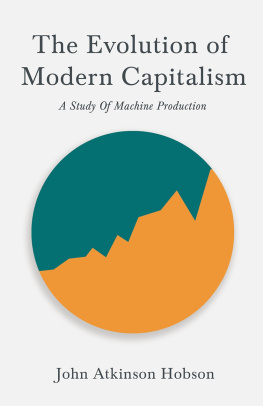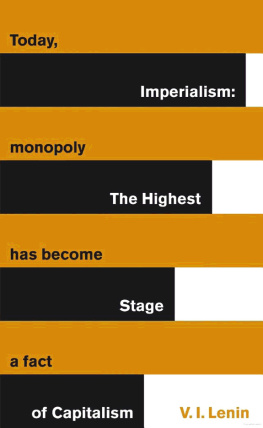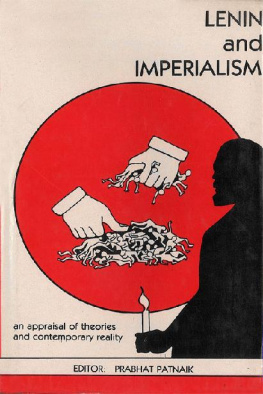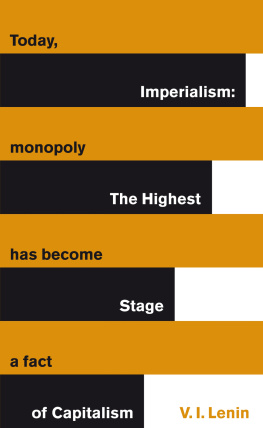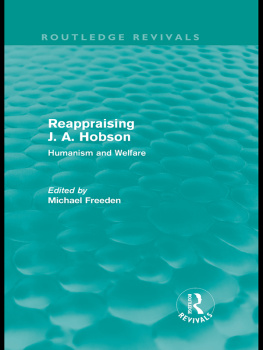J. A. Hobson - The Morals of Economic Internationalism: With an Excerpt From Imperialism, the Highest Stage of Capitalism by v. I. Lenin
Here you can read online J. A. Hobson - The Morals of Economic Internationalism: With an Excerpt From Imperialism, the Highest Stage of Capitalism by v. I. Lenin full text of the book (entire story) in english for free. Download pdf and epub, get meaning, cover and reviews about this ebook. year: 2008, publisher: White Press, genre: Politics. Description of the work, (preface) as well as reviews are available. Best literature library LitArk.com created for fans of good reading and offers a wide selection of genres:
Romance novel
Science fiction
Adventure
Detective
Science
History
Home and family
Prose
Art
Politics
Computer
Non-fiction
Religion
Business
Children
Humor
Choose a favorite category and find really read worthwhile books. Enjoy immersion in the world of imagination, feel the emotions of the characters or learn something new for yourself, make an fascinating discovery.
- Book:The Morals of Economic Internationalism: With an Excerpt From Imperialism, the Highest Stage of Capitalism by v. I. Lenin
- Author:
- Publisher:White Press
- Genre:
- Year:2008
- Rating:3 / 5
- Favourites:Add to favourites
- Your mark:
- 60
- 1
- 2
- 3
- 4
- 5
The Morals of Economic Internationalism: With an Excerpt From Imperialism, the Highest Stage of Capitalism by v. I. Lenin: summary, description and annotation
We offer to read an annotation, description, summary or preface (depends on what the author of the book "The Morals of Economic Internationalism: With an Excerpt From Imperialism, the Highest Stage of Capitalism by v. I. Lenin" wrote himself). If you haven't found the necessary information about the book — write in the comments, we will try to find it.
The Morals of Economic Internationalism: With an Excerpt From Imperialism, the Highest Stage of Capitalism by v. I. Lenin — read online for free the complete book (whole text) full work
Below is the text of the book, divided by pages. System saving the place of the last page read, allows you to conveniently read the book "The Morals of Economic Internationalism: With an Excerpt From Imperialism, the Highest Stage of Capitalism by v. I. Lenin" online for free, without having to search again every time where you left off. Put a bookmark, and you can go to the page where you finished reading at any time.
Font size:
Interval:
Bookmark:

of
ECONOMIC
INTERNATIONALISM
Imperialism,
The Highest Stage Of Capitalism
BY V. I. LENIN
Copyright 2019 Read Books Ltd.
This book is copyright and may not be
from the British Library
Stage Of Capitalism
Imperialism,
The Highest Stage Of Capitalism
BY V. I. LENIN
Hobson, in his work on imperialism, marks the years 1884-1900 as being the period of intensified expansion of the chief European states. According to his estimate, England during these years acquired 3.7 million square miles of territory with a population of 57 million ; France acquired 3.6 million ; Germany one million square miles with 16.7 million inhabitants ; Belgium 900,000 square miles with 30 million inhabitants ; Portugal 800,000 square miles with 9 million inhabitants. The quest for colonies by all capitalist states at the end of the nineteenth century, and particularly since the 1880's, is a well-known fact in the history of diplomacy and of foreig n policy.
OF
ECONOMIC
INTERNATIONALISM
Font size:
Interval:
Bookmark:
Similar books «The Morals of Economic Internationalism: With an Excerpt From Imperialism, the Highest Stage of Capitalism by v. I. Lenin»
Look at similar books to The Morals of Economic Internationalism: With an Excerpt From Imperialism, the Highest Stage of Capitalism by v. I. Lenin. We have selected literature similar in name and meaning in the hope of providing readers with more options to find new, interesting, not yet read works.
Discussion, reviews of the book The Morals of Economic Internationalism: With an Excerpt From Imperialism, the Highest Stage of Capitalism by v. I. Lenin and just readers' own opinions. Leave your comments, write what you think about the work, its meaning or the main characters. Specify what exactly you liked and what you didn't like, and why you think so.

